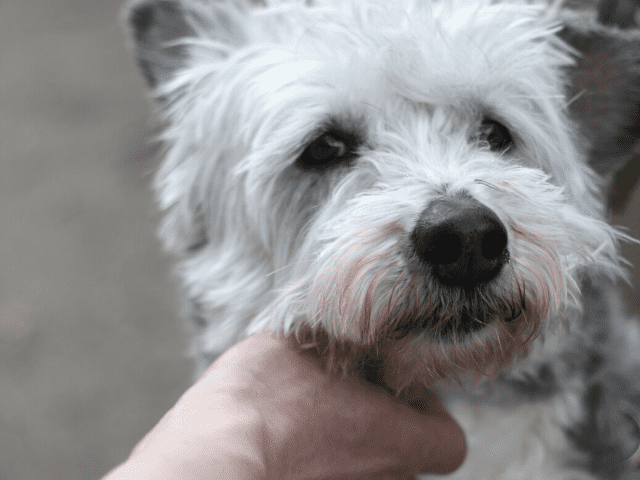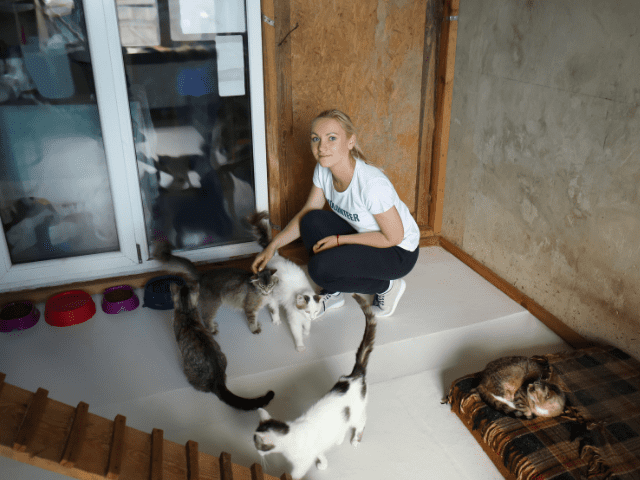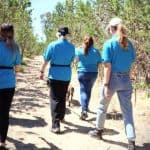If you love animals and have been considering a career working with animals, then volunteering is a fantastic way to get started. You can work close to home with familiar animals such as dogs and cats or, in a country as large and diverse as Australia, there is also a wealth of opportunities to work with wildlife.
Types of Volunteer Opportunities for Working With Animals
There are many possibilities if you want to work with animals in Australia. The following are the most common types of places where you could volunteer.
Animal Shelters
There are many non-profit organisations involved in the rehoming and rehabilitation of domestic animals throughout Australia. These organisations play a vital role in our community and offer rewarding and fulfilling positions to volunteers doing a variety of tasks including dog walking, cage cleaning, training, feeding, enrichment, administration and much more.
Animal Sanctuaries
Australia has quite a few animal sanctuaries. Some are dedicated to helping specific species such as birds, kangaroos, dingoes and koalas, while others care for a variety of species. Many of these sanctuaries are open to the public, in which case volunteer work might involve giving tours or lectures. Sanctuaries also need volunteers to feed animals and maintain the grounds.
Working with Animals and Helping People With Disabilities
Many organisations that serve the needs of people with disabilities incorporate animals into their therapies. For example, there are several centres that teach people with disabilities to ride horses. There are also facilities for the visually impaired that require help caring for the guide dogs.
Rescue and Rehabilitation
With such a large array of wildlife in Australia, with many species being threatened, volunteers can help organisations study, rescue, rehabilitate, tag and release animals. Most commonly, volunteers will work with birds and common wildlife such as kangaroos, to rear and rehabilitate injured or sick patients.
Marine Conservation
The Ningaloo and Great Barrier Reef play a crucial role in the environment of not only Australia but the entire world. Sea creatures such as turtles, dolphins and various species of fish are studied and aided by various organisations. Volunteers may help in the rehabilitation of injured animals and their environment or collect data for government organisations and institutions.

What to expect when volunteering
If you are considering a volunteer position working with animals, you should have some idea of what to expect. While animal lovers will enjoy the experience of bonding with animals, you also have to be prepared to work hard and get your hands dirty. Your responsibilities may include:
- Daily care – If you work in an animal shelter or sanctuary, you will be asked to contribute to animal care duties such as feeding, bathing, and exercising animals. You may also need to perform tasks to keep a facility running smoothly such as cleaning, maintenance, repairs and cooking.
- Providing medical care to animals – You may assist veterinarians who are treating injured animals or studying animal behaviour.
- Working in the water – Many positions in Australia involve helping sea creatures such as fish, dolphins, sea turtles and other water-dwelling animals. If you love the beach and water sports such as diving, you may seek out such a position.
- Tracking animals in the wild – To help with conservation efforts, many organisations are involved with tracking, capturing and releasing animals such as kangaroos, koalas, emus, and many other species.
What are the requirements and qualifications for volunteering with animals?
Organisations dedicated to helping animals are always eager to find volunteers. As a result, the requirements aren’t usually overly stringent. At the same time, you may need to meet certain criteria depending on the position or location.
- Costs – When you volunteer locally, there are generally no monies exchanged. You don’t expect to get paid, but you don’t pay anything either. When you travel to volunteer to work with environmental or wildlife organisations, however, you usually have to pay to cover any travel expenses, accommodations and food.
- Physical condition – Volunteer positions are usually open to all adults, regardless of age. However, to work with animals in Australia, you may need to be physically fit for certain positions. People with physical limitations can inquire about positions involving research, fundraising or other activities that don’t involve strenuous activity.
- Experience with animals – For certain positions, you may need particular types of experience. For example, if you are going to help disabled people learn to ride, you will need experience with horses.
- Specialised skills and experience – Certain types of volunteering may require particular skills. For example, if you are working in marine conservation, you may need diving experience.

Benefits of volunteering to work with animals
There are many potential benefits of taking a volunteer position working with animals. These include:
- Building your resume with new skills and experiences. Learn more in our post 9 Ways Volunteer Work Can Prepare You For Your Animal Care Career
- Seeing new places and learning more about the world
- Volunteering can be a fun and exciting break if you are due for a holiday and want to contribute to your local community
Anyone considering a career working with animals can gain valuable experience and find out if it is the right choice for them.
Where to find out more about volunteering with animals
Volunteering to work with animals in Australia takes some planning. It is best to do your research and find the opportunity that is a good match for your needs and preferences. This includes a situation that is within your budget and that works with your schedule. You may also have preferences for certain locations or to work with certain types of wildlife. Here are some places to get more information.
- Seek Volunteer is the largest source of volunteer opportunities in Australia.
- Go Volunteer provides information and resources about volunteering.
- Love Volunteers is an organisation that places volunteers for many types of positions, including wildlife volunteering in Australia
- GoEco offers many eco-tourism and volunteer opportunities, including a chance to volunteer at the Wildlife Animal Sanctuary
- Facebookhas many not-for-profit animal and wildlife organisations pages. Find your local organisations and follow their pages and join their groups to find out when they are looking for volunteers
- Linkedinalso has many not-for-profit animal and wildlife organisations listed. Again, engage with your local organisations here.
In addition to the above resources, you can inquire directly with major animal shelter and animal rescue organisations with which you may be familiar. If you want to volunteer, it is best to plan well in advance as some of these opportunities are quite popular.
What to do if you are interested in pursuing a career in animal care
Volunteer work provides an excellent foundation for career success in the field of animal care. If you would like to take your passion for helping animals to the next level, the best thing to do is reach out to Australia’s most trusted animal care training providers. For over two decades, Applied Vocational Training (AVT) has helped aspiring animal care professionals realise their dreams by providing the highest quality career training.
If you love animals, volunteering to work with them is something worth considering. You may also want toconsider a career in animal care. If you are interested in pursuing such a career path, you will need to acquire the right qualifications. AVT offers a variety of courses in fields such as animal care, horse care, vet nursing and more. To find out more about our courses and certifications, contact us.

Start your education pathway today!
On-Site Intensive
ACM20121 Certificate II in Animal Care (Health & Welfare)
About Animal Health & Welfare
Animal Health & Welfare
Flexible Online
ACM20121 Certificate II in Animal Care (Online)
Study Online









